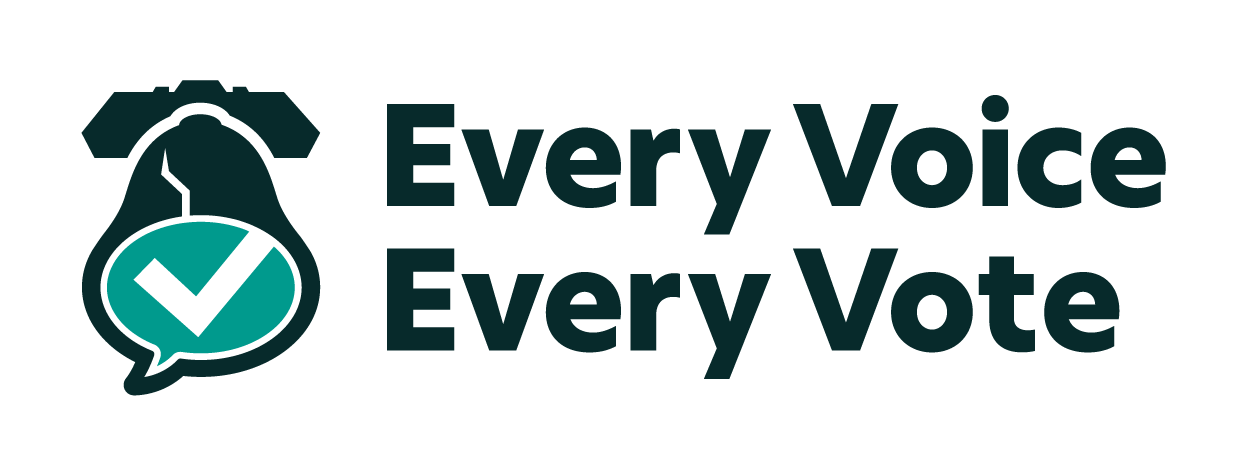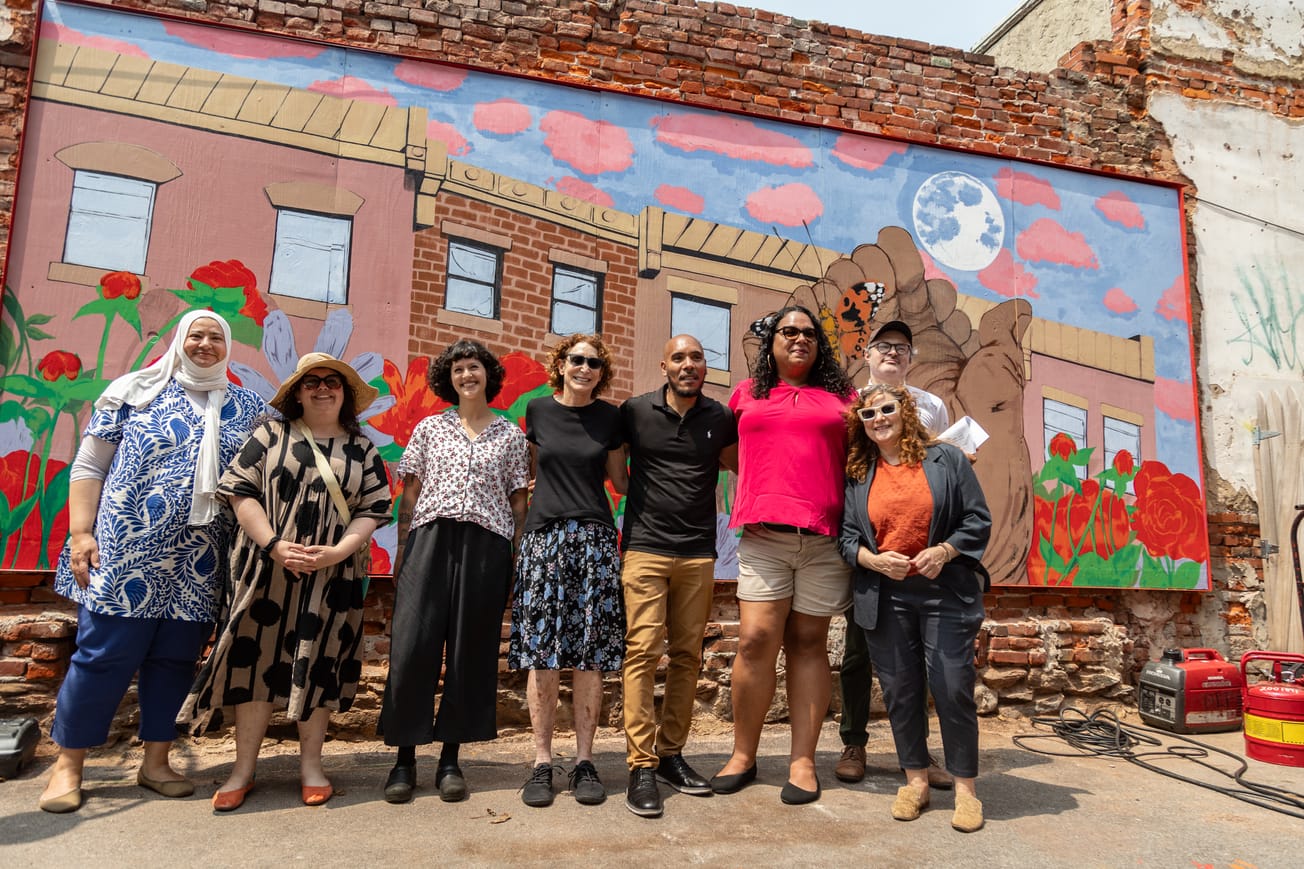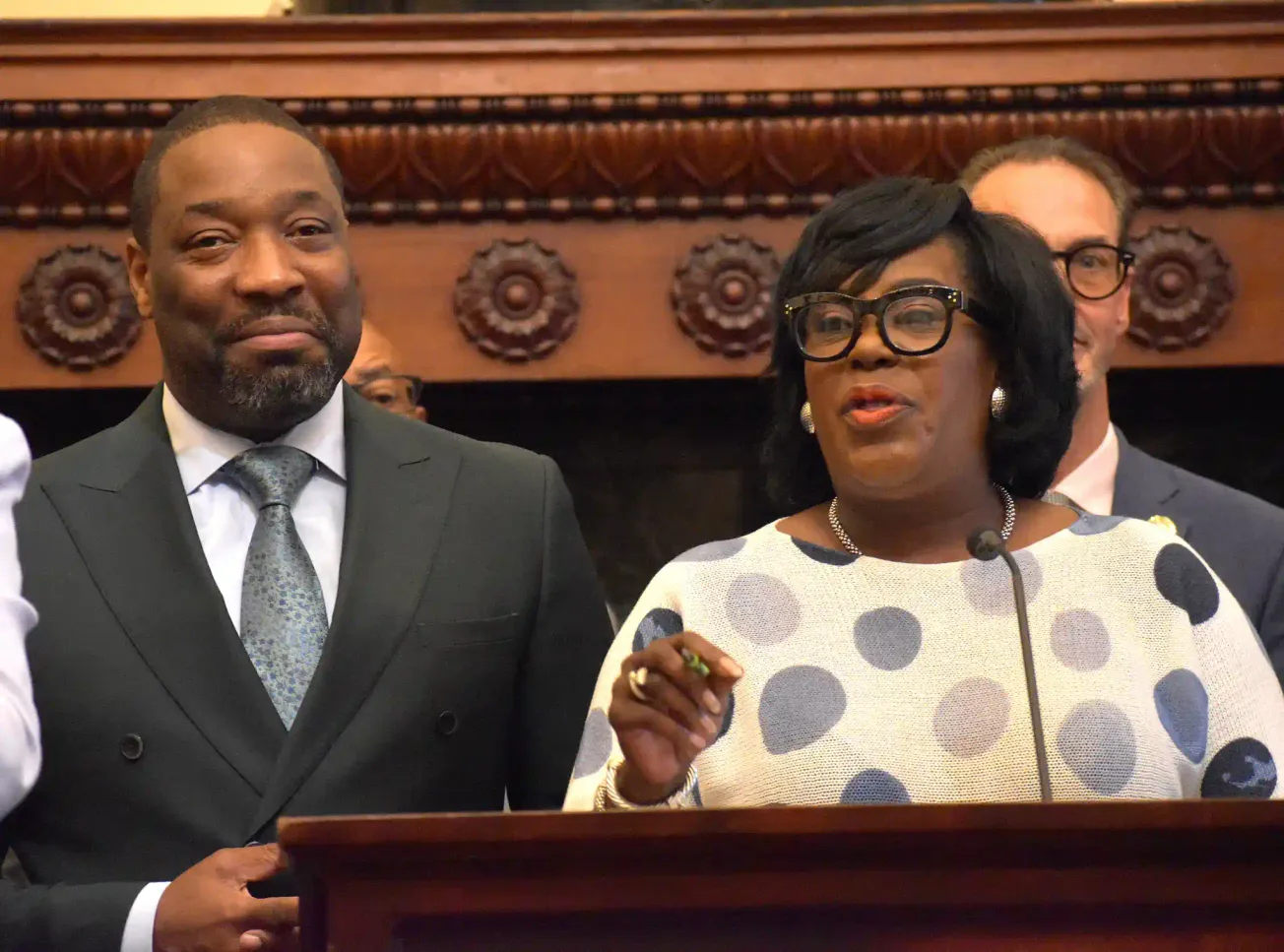There are two candidates running for Kensington’s City Council District 7 seat in the primary election on May 16.
District 7 includes Feltonville, Frankford, Harrowgate, Hunting Park, Juniata Park, Kensington, Norris Square, Northwood, Olde Kensington, St. Hugh, and West Kensington. The district is roughly between Roosevelt Boulevard and Master Street. In the Kensington area, the boundary cuts off between 6th Street and Kensington Avenue to Front Street.
Key issues in the district include gentrification, gun violence, the opioid crisis, sanitation, upkeep for public spaces, and general quality of life.
As part of our “Hey, City Hall! It’s Us, Kensington” project, we asked each candidate questions regarding topics of concern in the neighborhood. Questions were sent to both candidates via email due to time constraints. The selected questions were sourced directly from community members and lightly edited for clarity. We combined a few questions with similar themes. Kensington Voice staff contributed a few questions based on key issues in the district.
District 7 Councilmember Quetcy Lozada is running for reelection after winning the district’s special election in November 2022 after Quiñones-Sánchez’s departure. Lozada previously worked for Quiñones-Sánchez. Read her responses to questions regarding what she’d do on City Council below.
Click here to read the response from the other candidate.
As District 7 Councilmember, what would your priorities be for Kensington?
The top priority for Kensington must be the delivery of safe, clean, well-maintained streets, sidewalks, public spaces, and mass transit lines for all residents. That must be the baseline commitment of a municipal government to its citizens and we are not delivering that for the hardworking people of Kensington.
Decades of disinvestment and corporate greed have fueled the American opioid crisis. A national effort is needed to turn the tide, but that doesn’t mean that a single neighborhood in Philadelphia deserves to bear the brunt of this crisis. In Kensington, we are tolerating a disregard for the basic sanitation and safety needs of our shared spaces. This needs to end.
As we restore cleanliness and safety, we can grow our public space programming. We can activate our streets, parks, and playgrounds. Our business corridors will have the opportunity to grow and prosper. We can build the thriving, walkable, culturally and socio-economically diverse community that Kensington has the potential to be.
What will you do to change and improve sanitation issues in Kensington?
Kensington may be the most challenging sanitation issue in the entire city. We will need a whole government approach to tackle this issue. Multiple agencies will need to work together to get us there.
First, we have to accept that people are living outside in this community. We have to work to end that, but it is a reality today. What are we doing to manage waste and trash from these individuals? If we don’t have a city plan, we are leaving this burden on the neighborhood residents, and that is unfair and unacceptable.
For illegal dumping, we need to regulate the waste-hauling industry. Create structure for licensed waste haulers, and track where tires and cleanout materials go. Create an auditable and enforceable paper trail.
We can also deter illegal dumping by activating and protecting open spaces. We know that stabilizing vacant lots, fencing them, and keeping them mowed dramatically reduces illegal dumping. We need this throughout this neighborhood.
In my time working for Councilwoman Sánchez, our office was a huge supporter of the **Zero Waste and Litter Cabinet. That program reduced illegal dumping by over 40% in Philadelphia. Those are real results. It should not have been closed, and the program needs to be restored.
**Editor’s note: Mayor Jim Kenney created the Zero Waste and Litter Cabinet in 2016 to reduce the amount of litter in public spaces and waste sent to landfills and incinerators. In 2020, the cabinet was eliminated due to budget cuts at the height of the pandemic. According to Green Philly, the cabinet reduced illegal dumping by 41%.
Will you commit to adding more public trash cans in the neighborhood?
Yes, but these public cans must be emptied regularly to be effective! We have **Litter Index scores that show the litter challenges of our communities. Those scores should determine how many trash cans a community needs and drive the maintenance resources to the neighborhoods that need it the most.
**Editor’s note: The Litter Index was a survey created by the Zero Waste and Litter Cabinet to measure litter conditions in Philadelphia and create data-driven strategies to reduce it. Kensington and Harrowgate were among the neighborhoods with the highest index scores in 2017 and 2018.
How will you reduce our addiction to armed-intervention approaches and introduce working restorative justice models?
We have an overreliance on armed intervention that makes our communities less safe. Police are asked to respond to a wide range of mental health situations where they lack the specialized training needed to de-escalate. Our criminal justice system routinely removes young offenders from their communities, further increasing community trauma and limiting the possibilities for rehabilitation and community healing.
I support the work of the Philadelphia Treatment Not Trauma Coalition. We need to expand Mobile Crisis Response to ensure that mental health professionals are in the lead when dealing with mental health crises. We need 24/7 access to these programs.
I also believe that Restorative Justice programs can prevent and repair harm and strengthen community bonds. That simply doesn’t happen when people are removed from communities. The Healing Futures program is a promising youth restorative justice program spearheaded by the DA’s Office. We can expand this successful program to reach more young people. I will lead the way in building a Kensington-specific program tailored to the needs of this community.
Do you support ending the 10-year tax abatement program?
I believe that there is a role for abatements in supporting development in Philadelphia. I support amending our abatement structure to incentivize affordability, accessibility and environmentally sustainability in new construction.
What will you do to support homeowners and to ensure that quality housing is made available for individuals with low incomes?
We have some programs that work, such as the Homestead Exemption. But the residents of the 7th District and Kensington are chronically under-enrolled, and this neighborhood does not receive its fair share of support services as a result. We know what’s needed to get the word out. We must go door-to-door and ensure that residents have access to these programs. We can’t leave people behind.
There are some promising new programs, such as Pennsylvania’s Whole-Home Repairs Program, which helps low-income homeowners make needed repairs to help them stay in their property. We need to expand programs like this.
I also believe we must prioritize deeper, permanent affordability when we sell public land.
How will you expand upon and protect green spaces in Philadelphia? What strategies do you have for increasing tree cover in our lowest-income neighborhoods?
Tree cover is a serious urban issue. Neighborhoods without tree cover can experience temperatures as much as **seven to 10 degrees higher during a summer heat wave. As we face longer and deeper heat waves as a result of climate change, this will only get worse. These elevated temperatures can even result in an increase in heat-related deaths. For the sustainability of our city and for climate justice, we need an equitable tree canopy.
We have not done enough to promote, educate, and support the expansion of street trees in Kensington. We need to set climate change and climate justice goals for green spaces, plant and tend our trees, and expand green stormwater infrastructure.
I not only believe this will build healthier and more beautiful communities but also create job training and career opportunities for our young people.
**Editor’s note: According to WHYY, some Philadelphia neighborhoods with less tree canopy can experience temperatures up to 22 degrees higher than ones with more trees on hot summer days.
How would you address food insecurity?
I support continued experiments with Universal Basic Income, especially for families with young children. A recent city pilot program is showing promising results.
I believe we can form partnerships between our food bank programs and local food businesses to make sure culturally relevant prepared foods are available to those in need while simultaneously supporting our small food businesses.
How would you address the lacking accommodations (ranging from curb cuts to ASL interpretation) for people with disabilities?
The state of our sidewalks and crosswalks is deplorable, in terms of keeping them clear of debris and obstruction, as well as keeping them in good repair. This can be challenging for able-bodied residents, but it can be prohibitive for residents with mobility issues. I believe we must prioritize clear sidewalks and right of ways. I will take a zero-tolerance approach to cars on sidewalks and blocking crosswalks and curb cuts.
Why is it so hard to get cars removed from sidewalks and streets fixed?
The abuse of the public right of way, our sidewalks and crosswalks, is rampant in Kensington. I know this doesn’t need to happen because I see that as a city, we are doing a much better job of keeping Center City right-of-ways clear through regular, reliable enforcement.
We will only turn the tide by reliable enforcement. You won’t park on the sidewalk if you know your car will be ticketed and towed! We need our newly created Safety Enforcement Officers working the streets of Kensington to ensure that the right-of-way is respected.
Another issue is having a large number of vacant properties, vacant lots, and lower-income homeowners can result in poorly maintained sidewalks. I support grant programs to help low-income residents maintain their sidewalks. We can get tough on landlords who are neglecting their responsibilities for their sidewalk. As a city, we can take the lead in sidewalk repairs and issue liens on the abandoned properties they are connected to. It will take a multi-pronged strategy to resolve this.
What will you do to ensure basic services are met?
It starts with clean, safe, well-maintained streets and public spaces. That is the baseline that allows our neighborhoods to succeed. I believe that the delivery of city services must match the level of need in our communities. Neighborhoods with the most severe challenges with cleanliness and safety need to receive focused resources. Neighborhoods with severe challenges need coordinated, multi-department initiatives with clear goals to re-establish a baseline of services.
What is your opinion on safe injection sites?
I believe that no safe injection site should be built without community support. The people of Kensington have been clear, they are bearing far too much of the brunt of Philadelphia’s opioid crisis, and they do not support the construction of a safe injection site. We need a citywide strategy that places addiction support services in all communities, not just Kensington.
What long-term solutions do you have in mind to address the opioid crisis?
We need a citywide strategy for treating the epidemic, not just a Kensington triage strategy. Opioid addiction is happening in every neighborhood in Philadelphia. We need addiction and overdose prevention resources available in every neighborhood. If we are serious about solving the problem, we must lower the barriers to access programs. No one should be turned away.
Kensington needs a public commitment to neighborhood improvement broad and sustained. If we don’t clear our vacant lots, fix our broken lights, reclaim our public spaces, we will continue to face a disproportionate share of the opioid crisis.
With the large numbers of street homeless dealing with addiction, we need permanent no-barrier housing for people in recovery. Not just in Kensington but in all neighborhoods in Philadelphia.
What is your plan to address community safety and gun violence?
More officers on foot and on bicycle in our neighborhoods is a starting point. Get our strongest leadership, our best captains and lieutenants in the districts that need it the most.
There is increasing data that ground-level community improvements like clean streets, remediation of blight, tree cover, removal of abandoned vehicles, and well-lit public spaces create safer neighborhoods. Blighted communities attract crime. We can turn the tide in Kensington. It starts with a commitment to our public space.
How could you work with the Philadelphia Police Department to address low recruitment numbers?
We are facing two challenges: a lack of awareness and access to the hiring opportunities that do exist and a lack of trust in City government that deters many people from pursuing a career in public service. We can address the first issue with outreach and promotion, building a pipeline of young people who have been introduced to careers in public service. We also need to rehabilitate the image of our Police Department with a focus on community policing and building positive relationships between beat officers and the communities they serve.
If police are viewed as a negative force in our communities, we will struggle to recruit young people to the profession.
How could you work with the mayor to address the City’s staffing shortages?
Similar to the answer above. We are not promoting the good, stable job opportunities that exist in city government. We have the talent here in Philadelphia to build a first rate local government. We have to identify and recruit talent from our communities to build the government that we deserve. I am eager to work with our Mayor to rebuild Philadelphia’s civil service.
Editors: Zari Tarazona / Designer: Siani Colón

This content is a part of Every Voice, Every Vote, a collaborative project managed by The Lenfest Institute for Journalism. Lead support is provided by the William Penn Foundation with additional funding from The Lenfest Institute, Peter and Judy Leone, the John S. and James L. Knight Foundation, Harriet and Larry Weiss, and the Wyncote Foundation, among others. To learn more about the project and view a full list of supporters, visit www.everyvoice-everyvote.org. Editorial content is created independently of the project’s donors.





